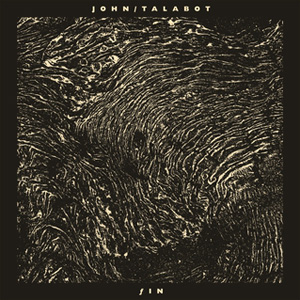John Talabot ƒIN
Back in November, we grabbed John Talabot for a few minutes of conversation, and the […]

Back in November, we grabbed John Talabot for a few minutes of conversation, and the Barcelona-based producer expressed some trepidation about his new album potentially being labeled both “tropical” and “shiny.” As it turns out, Talabot is likely to be 50% satisfied, as there is almost nothing “tropical” about his debut full-length, but the prevalence of glistening synth tones throughout the record makes it quite possible that someone might deem it a “shiny” effort after all.
That said, Talabot (which, by the way, is not his real name) has absolutely nothing to worry about, as ƒIN is, simply put, a stellar effort. While the producer may have initially gained notoriety via his remixes for indie and indie-leaning acts like The xx, Delorean, Teengirl Fantasy, and Glasser, his work—particularly on singles like “Sunshine” and “Matilda’s Dream”—has always transcended the awful “indie-dance” tag. Having previously served as a longtime resident DJ at Barcelona’s famed Razzmatazz nightclub, Talabot’s history with dance music runs deep, which is likely why he was able to fold in elements of so many different styles and eras into ƒIN. The diversity of sounds represented is impressive in its own right, but the fact that Talabot manages to distill them all into a sonically and artistically coherent statement is what truly puts him on another level.
In all fairness, when his past efforts were referred to as “tropical,” some of that was likely due to lazy journalists who meant to say “Balearic” (admittedly, another murky term). For all of Talabot’s attempts to create something dark and moody, there is something intrisically sunny about his production—not sunny as in “happy,” but sunny as in “music you’d hear at an epic dance party on the beach in Ibiza in 1992.” Take the album’s opening cut, “Depak Ine,” a slow-motion house cut that begins with ominous moans and subtle nature sounds before blossoming into a massive tune with a thick, synthy bassline and soaring melodies. It’s followed by “Destiny,” one of the record’s two collaborations with Madrid’s Pional, a tune which infectiously dips deeper into history, channeling the best moments of ’80s synth-pop with its swirling synths and catchy vocal refrain. The other Pional collab, “So Will Be Now,” is completely different, but might be even better. Closing out the album, the song pitches down a soulful vocal and pairs it with a funky, albeit nuanced, house rhythm. “Oro y Sangre” is similarly excellent, even as it marries samples of horror-flick screams with lurching melodies, a propulsive bassline, and acid-house-on-Ketamine sensibilties.
Without a doubt, some of ƒIN‘s best moments are those geared for the dancefloor, but Talabot has wisely used the album format to create something that goes beyond the club. “El Oeste” is a gorgeous, synth-driven tune that piles floating melodies atop sparse, crackling percussion. “Estiu” follows a similar pattern, although a steady disco beat and funky bassline eventually emerge from the song’s melodic haze and carry the production. “H.O.R.S.E” is another track that goes light on the percussion while crafting a dark, haunting feel, only to dramatically switch gears and ratchet up the synths to levels that could be described as bombastic; the contrast between the song’s spooky spirit and big-room inklings is certainly interesting. Then there’s “Journeys,” which features vocals from Delorean frontman Ekhi Lopetegi and just might be ƒIN‘s most blatantly pop offering, as the track combines handclap percussion and punchy bass tones with a cascade of constantly morphing synthlines. On another note entirely, “Last Land” is an oddly psychedelic, vaguely retro number that rides along a spinning, guitar-like melodies, melodramatic vocal bits, and a slow, shuffling beat. Even weirder is “Missing You,” which warps its vocals in a manner similar to The Knife and then combines them with one of Talabot’s patented slowly swelling dancefloor rhythms.
Even for seasoned producers, making a quality electronic full-length is no easy task, yet John Talabot has delivered something special on his first go-round. It’s pop, it’s house, it’s disco, it’s leftfield, it’s light, it’s dark, it’s moody, it’s celebratory, it’s fresh, and it’s retro, all at the same time. Honestly, it’s a little bit of everything, which is perhaps why ƒIN is such a rich, fulfilling listen. And yes, at times it’s “shiny,” but in this case, that’s certainly not a bad thing.

